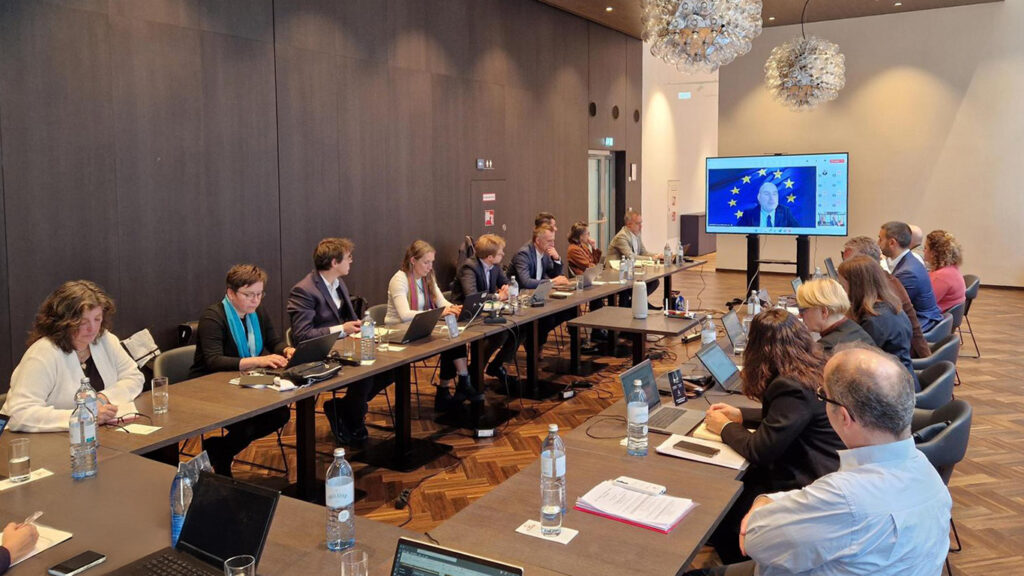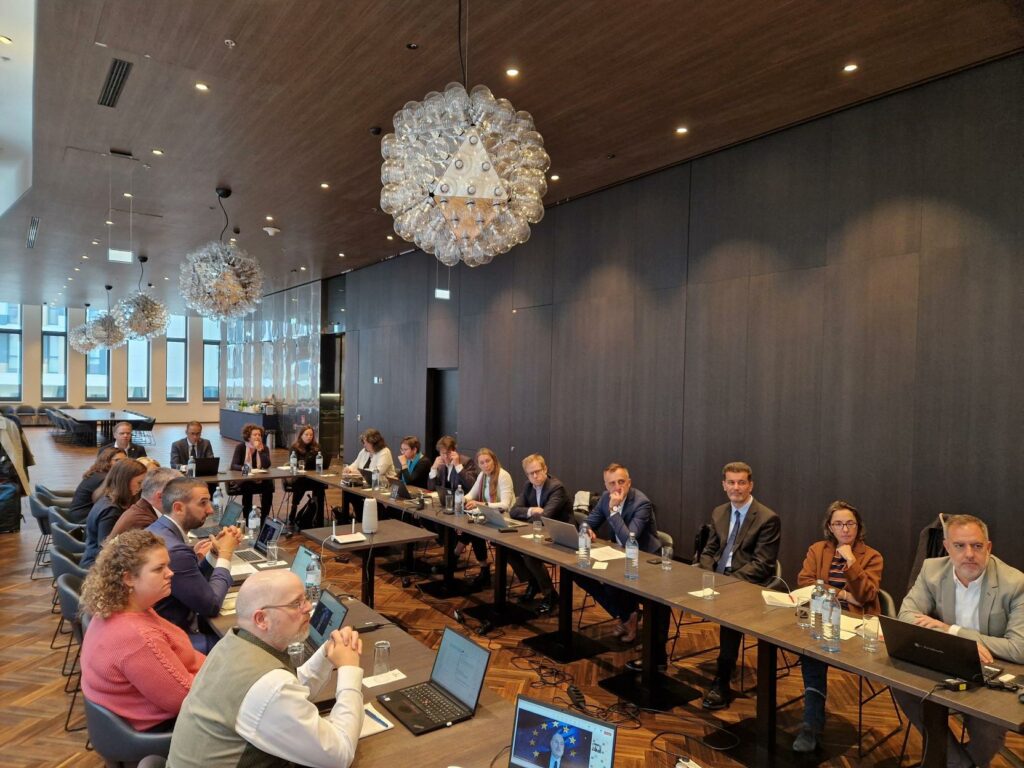New challenges, emerging from the draft Capacity Regulation, demand closer and more regular exchanges between Infrastructure Managers and Regulatory Bodies.
The draft Capacity Regulation introduces new challenges and responsibilities, highlighting the need for intensifying coordination and exchanges throughout the railway sector. In response, representatives from RailNet Europe (RNE), the Independent Regulators’ Group Rail (IRG Rail) and the Directorate Genera Mobility and Transport (DG MOVE) met for a joint meeting on 17 October 2024, hosted by RNE and held in a hybrid format in Vienna and online.
With over 60 participants from all key stakeholder groups, this forward-looking dialogue underscores the importance of collaboration as the sector prepares for the proposed regulatory changes.
Key Topics Discussed
The meeting covered several critical topics:
- Strengthening Information Exchange: Joachim Kroll, RNE Secretary General, highlighted that the regular annual meetings between RNE and Regulatory Bodies provide a solid foundation. However, he noted the need to increase both the frequency and focus of the discussion to address the new legal framework and the emerging responsibilities of entities outlined in the draft Regulation.
Carl von Utfall Danielsson, Chair of IRG-Rail for 2024 from the Swedish Regulatory Body Transportstyrelsen, underscored this need to strengthen interaction, stressing the importance of ongoing engagement, particularly as discussions on the impact of the new legislative initiative are still underway. - Goals of the Draft Regulation: Sandro Santamato, Head of Unit C3 in DG MOVE, outlined the primary objectives of the draft Regulation, emphasising that additional efforts are essential from the sector to further reduce delays in cross-border transport. The focus on international coordination is key to addressing the current challenges faced at national borders.
- Expectations on mutual Roles: Participants shared their expectations and discussed the need for clearly defined roles and responsibilities within the proposed new governance model, particularly the mandates of the European Network of Infrastructure Managers (ENIM), the Network Coordinator, and the European Network of Rail regulatory Bodies (ENRRB).
RNE shared updates on preparations for its potential new role as “Network Coordinator” , including its initial work on the European Frameworks for Capacity Management, Traffic Management, and Performance Review, as stipulated in the draft Regulation.


New Developments
Furthermore, the meeting provided updates on:
- Capacity and Traffic Management Procedures: Recent RNE developments on common procedures on Capacity Management and Traffic Management and corresponding IT developments were presented and discussed in an open and constructive atmosphere.
- Rail Facilities Portal (RFP): RNE presented recent advancements in the RFP, including its integration into the Railway Infrastructure System (RIS). IRG Rail shared updates on ongoing and planned activities from the Service Facilities working group.
Commitment to Continued Dialogue
The meeting concluded with a shared commitment to ongoing discussions in 2025.
Participants aim to further analyse and address the implications of the draft Capacity Regulation, ensuring a smooth transition to the new framework.